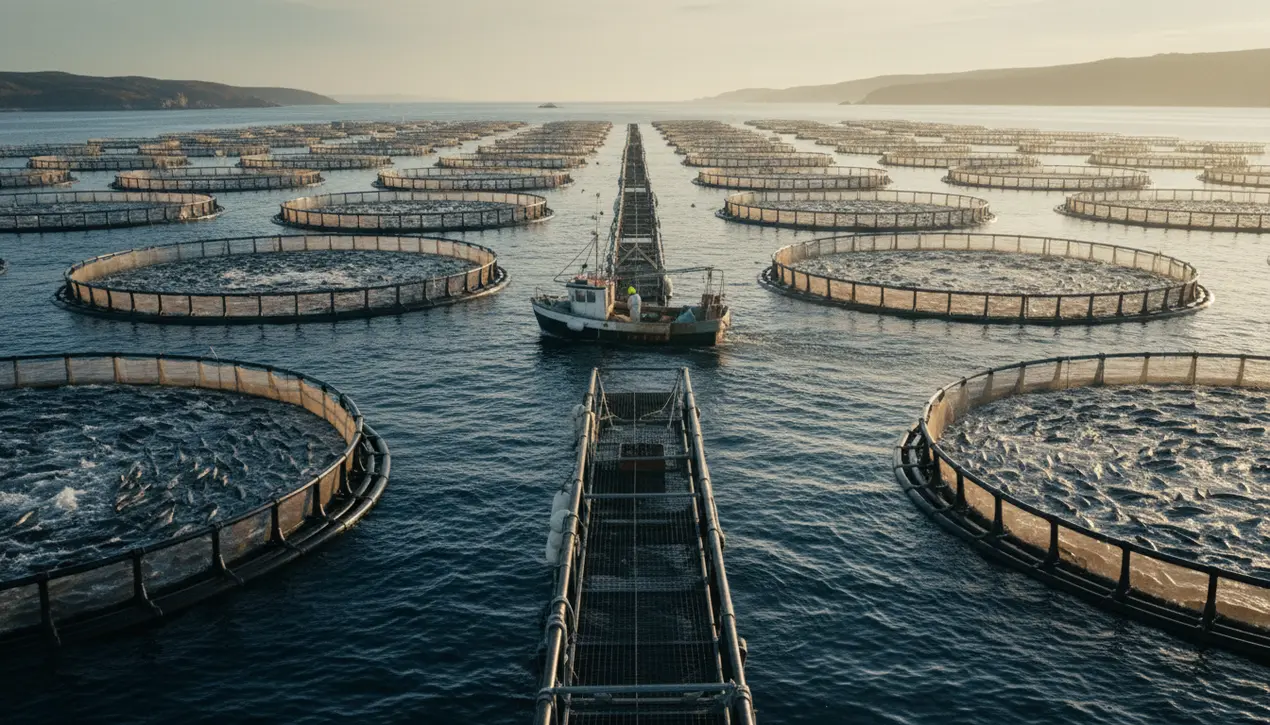
SciencebiologyMarine Biology
Eating the Ocean: The Undercovered World of Fish Farming
RA
Rachel Adams
6 hours ago7 min read3 comments
Beneath the placid surface of our collective environmental consciousness lies a submerged revolution, one that is fundamentally reshaping our relationship with the planet's most dominant biome: the ocean. While Vox’s Future Perfect has rightly dedicated significant resources to exposing the grim realities of terrestrial factory farming, with its annual toll of roughly 80 billion land animals, this focus obscures an even more staggering and overlooked phenomenon occurring in the deep.The scale of our consumption of aquatic life is orders of magnitude greater, numbering in the hundreds of billions, even trillions, of individual creatures each year. The pivotal shift, however, is not just in the numbers but in their origin.As of 2022, a landmark report confirmed that the majority of fish on our plates are no longer wild-caught but are products of aquaculture—a system of underwater factory farms whose rapid expansion presents a profound ecological and ethical crisis. This is not merely an agricultural story; it is an existential one.The oceans, which regulate our climate and produce most of our oxygen, are being directly engineered for mass production, with aquaculture standing as the fastest-growing food production sector globally. The consequences ripple far beyond the crowded, waste-choked pens that now dot coastlines from Norway to Chile.Consider the Atlantic salmon, a wild athlete honed by evolution for epic migrations across hundreds of miles of open ocean, now rapidly domesticated and confined to barren enclosures where it cannot enact its most basic instincts. This forced transformation of a species is a breathtaking act of ecological alteration, one that carries with it the pollution of local waters, the spread of disease to wild populations, and a deep, unsettling question about our right to so radically refashion animal lives.At the heart of this industrial complex lies a fierce, captivating philosophical debate: do fish feel pain? The science is increasingly conclusive, pointing towards complex nervous systems and behavioral responses indicative of suffering, yet societal narratives persist in casting these animals as unfeeling resources. This cognitive dissonance extends even further down the phylogenetic tree to creatures like shrimp, which are farmed in such incomprehensible numbers that their individual welfare, if they are indeed sentient, constitutes one of the most pressing and neglected animal welfare issues on Earth.The project 'Eating the Ocean' seeks to drag these murky, secretive depths into the light, challenging us to reconsider the very nature of compassion and our responsibilities towards the misunderstood aquatic beings that populate the vast majority of our world. It is a clarion call to recognize that the future of life on Earth is inextricably linked to how we choose to consume the sea, a choice that currently tilts towards a model of industrial dominion that the oceans may not be able to survive.
#aquaculture
#fish farming
#animal welfare
#seafood
#sustainability
#editorial picks news
#ethics
#environment
#future perfect
Stay Informed. Act Smarter.
Get weekly highlights, major headlines, and expert insights — then put your knowledge to work in our live prediction markets.
Related News
Comments
Loading comments...
© 2025 Outpoll Service LTD. All rights reserved.